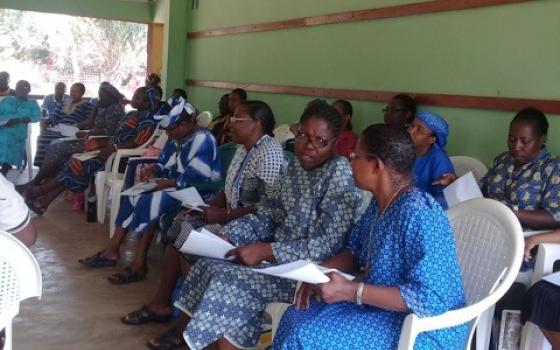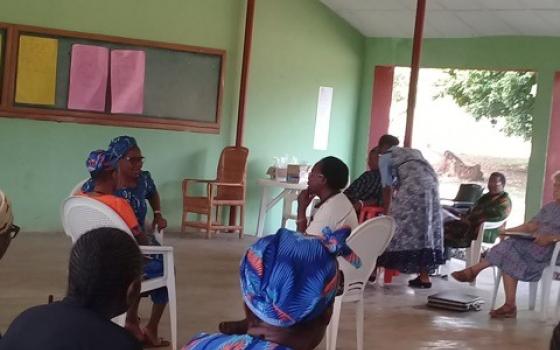I was at a workshop recently with some of my sisters where a practice called nonviolent communication was put to use. I find this method of communication very healthy and effective because it gives each person a space and chance to be heard and understood. Any meaningful relationship depends on this.
During the workshop I discovered that at times when I try to communicate, especially in times of conflict, I either get hurt or hurt the other person while trying to say my mind. At this point the other person is equally making an effort to communicate her view. Then we may end up upset with each other and neither of us hears what the other is saying.
Instead, nonviolent communication, which was developed by Marshall Rosenberg in the 1960s, helps us become compassionate listeners and communicators. Being truly open to whatever someone is saying, even if I disagree, is very important. This is fair enough. Nonviolent communication is the language of the heart since everything I say comes from within. No wonder Pope Francis said in one of his messages, "In the most local and ordinary situations and in the international order, may nonviolence become the hallmark of our decisions, our relationships and our actions, and indeed of political life in all its forms."
Clarity is so important. The content and meaning of what I say must be clear to enable the other person to understand me. Then, before I respond to any communication, I need to get the meaning of the speaker, perhaps by reflecting back to her what I heard. When this is done I will understand the person better and we will connect. The greatest gift I can give to anyone in communication is to be truly present and listen to the meaning the person wants to communicate. This is vital because everyone needs to be listened to. It gives me joy when I’m listened to and understood!
To use nonviolent communication successfully, it is important to understand that in any bid to communicate there is always a need I’m trying to meet. When that need is not met I feel hurt and angry. This is true for everyone because every action one performs is an attempt to meet a need. A simple example: I come home hungry and my need is food, but the food is not ready. Instead getting angry at whomever is in charge of preparing the food, I can meet my need by taking some snacks while waiting for the meal to be ready.
One question asked of us during the workshop brought so much awareness to me: What are each of us longing for in our interpersonal relationship with ourselves, our community and our ministry? The answer varied from person to person, but the same need was longing to be met. We long for understanding, love and care. We also long to speak the truth with care, to have the ability to accept ‘no’ as an answer and to understand what the other person is saying before responding. Understanding common needs will go a long way toward improving my relationship with myself and others.
Two qualities about relationships stand out: bonding and bridging. I bond in relationship to meet my need for connection, a need every human being longs for. In bridging relationship, I cut across my culture, tribe, race and nation. I stretch beyond my own group to embrace people of every nationality.
During the workshop we were told that a deeper way of listening to others is to find out what they are needing at the point of their communication. In order to find out these needs, I should know that needs are universal and interdependent to all. At the level of these needs, all of us are brothers and sisters because they are what I cannot do without. For instance, I need peace, love, care, connection, happiness, food, air, water, support, trust, understanding, compassion, acceptance, cooperation, truthfulness, the list can go on and on.
In one of the sessions I found out that needs are divine energy that motivate my actions. They are inviting me to look beyond issues, at what lies under the issues. I should be flexible in meeting my needs so that I don’t do it at the expense of others.
All workshop participants practiced an exercise called “self empathy journal.” This journal helped me ease my pains and hurts by writing down all my thoughts and feelings about an experience. It enabled me to empathize with myself, to see the needs I was trying to meet and also to do the same with the person who I felt had hurt me. It was a healing and forgiving moment for me and the other participants.
Communication is the pivot in any meaningful relationship. This is because humans are social beings and depend on communication to thrive. The way I communicate to others matters a lot in my relationships with them. Communicating with compassion helps us live and meet our needs peacefully.
[Sister Teresa Anyabuike is a Sister of Notre Dame de Namur. She is the coordinator of Catholic Community Self-help Association, a department in Justice Development and Peace Mission, Ilorin Diocese, Kwara State.]


